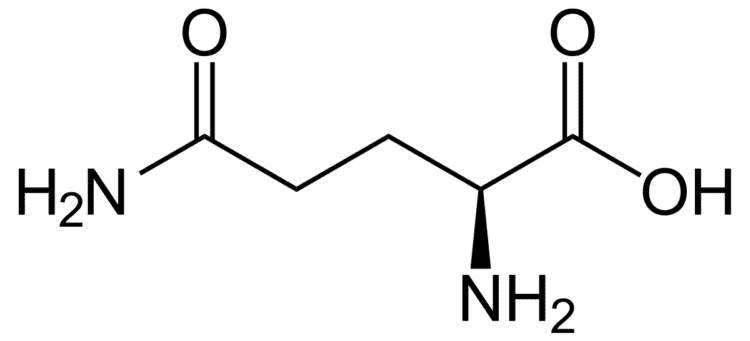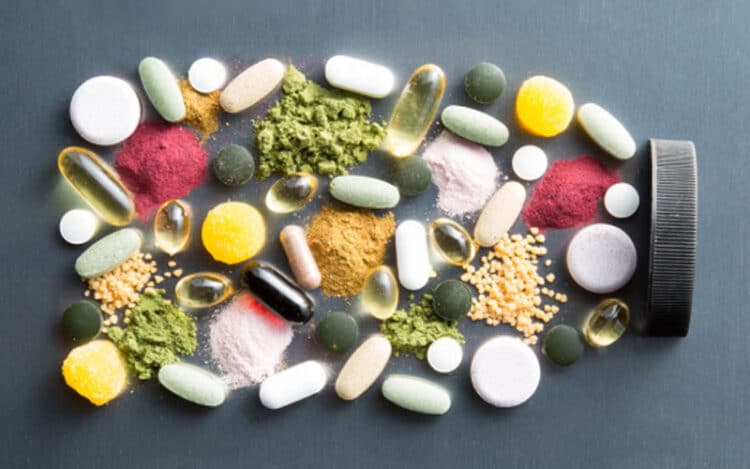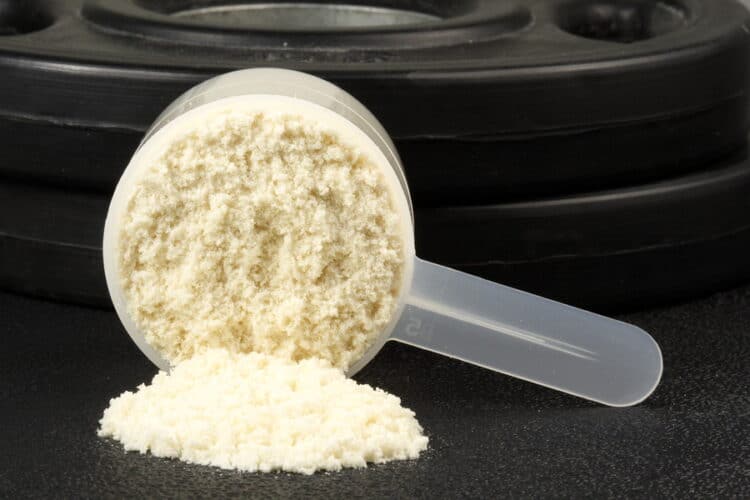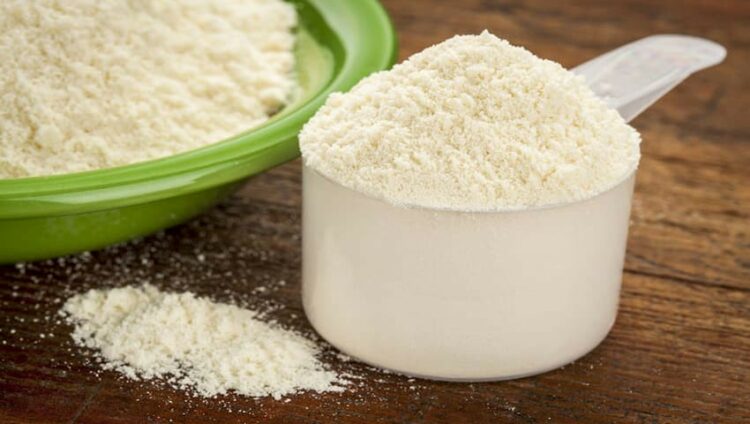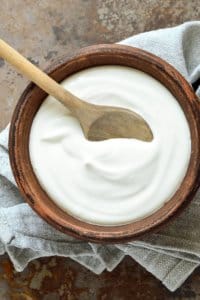Glutamine is one of the most important helpers of our immune system. Undoubtedly, amino acids are extremely important for our body and form the building blocks of protein. Glutamine, itself a type of amino acid, is responsible for building protein structures. Of course, there are periods when you feel sluggish or tired. If you feel that your energy is depleted, it is useful to have your glutamine values checked.
What is Glutamine?
L-glutamine is an amino acid found in abundance in muscle cells and blood. It is classified as a conditionally essential amino acid, which means that the body has the ability to produce enough to meet its metabolic needs normally. However, additional glutamine may be required under certain circumstances. For example, their levels are depleted during intense exercise, which means more glutamine is needed. Because the body needs it and cannot produce enough (although it can be made by the body), supplementation is needed to help meet the body’s demands.
In scientific terms, when a gene is expressed, it encodes a particular amino acid for three consecutive base pairs, and by linking these amino acids, a polypeptide chain is made that eventually forms a protein. As one of these amino acids, glutamine is encoded by base pairs CAA and CAG (where C stands for cytosine, A stands for adenine and G stands for guanine).
Glutamine is the most abundant free amino acid found in human blood at a concentration of about 500-900 micromoles. It is a type of amino acid that is considered conditionally essential. Essential amino acids are amino acids that cannot be produced by the body and therefore must be consumed in the diet. A conditionally essential amino acid is one that may stop being produced by the body in certain disease states, such as prematurity or severe catabolic distress.
It plays an important role in maintaining the acid-base ratio of the body. This amino acid is used to remove excess ammonia, a toxic waste product of deamination reactions. It ensures that toxic ammonia is excreted by the kidneys and binds to acids before being excreted. It is also necessary for the production of other substances in the body such as glucose or other amino acids.
It is made in the muscles and then distributed to various organs in the body through the bloodstream. Usually, the body produces enough of it necessary for normal bodily functions. But certain conditions, such as injury, surgery, persistent stress, or infection, can lower glutamine levels. A supplement may be prescribed when the body needs more glutamine than it naturally produces.
What Does It Do?
Glutamine has several functions, including supporting muscle protein synthesis. It actually provides 35% of the nitrogen to the muscles to synthesize proteins. This will promote protein synthesis. Why is this important? The benefits of maintaining a high nitrogen balance in the muscle prevent muscle breakdown, thus promoting greater muscle retention. That equals a weaker you! It can help reduce overall body fat. However, it should be noted that there are no proven and clear sources that it has a full fat burner feature.
But the reference is made to show that it can help add/maintain lean muscle tissue, which means you’ll be leaner. In this little fat burning note, there are some studies suggesting that glutamine supplementation has the ability to manipulate tissue insulin sensitivity.
What are the Side Effects?
It is an amino acid that can be found in a variety of foods and is also produced naturally by the body. There is no reason to believe that it can cause any harm or adverse side effects when sticking to the recommended serving stated on the supplement packaging. It is important to always refer to the recommended dosage when taking supplements; If you’re new to a particular supplement, try taking a smaller serving than recommended to reach tolerance.
Can Glutamine Powder Reduce Bloating?
One pretty awesome benefit of L-glutamine is that it has the ability to draw water and salt into muscle cells. You may question water retention, which is minimal at best, but the key here is that a hydrated muscle is a healthy muscle! Protein synthesis occurs faster when muscle cells grow.
This means that glutamine stimulates an increase in cell volume as well as muscle protein synthesis. It has anabolic and also immunostimulating effects, meaning it can help your immune system function properly and even give it a nice boost when needed. In some studies, glutamine supplementation has been shown to stimulate the immune system and reduce the incidence of disease after prolonged endurance exercise.
What Are the Benefits of Glutamine Supplements?
One of the main benefits of glutamine is for repair purposes. It can actually reduce muscle soreness through enhanced muscle repair and glycogen replenishment! I think its biggest benefit is its ability to regenerate/repair the digestive system. Studies show that glutamine supplements support the health and integrity of the gut lining.
When people suffer from IBS, celiac disease, or other digestive issues, the prescription includes glutamine in the protocol to help heal the gut lining and reduce symptoms like bloating. Because the bioavailability of free glutamine is significantly higher than that of glutamine peptides, most research has been conducted with the free form of L-glutamine favoring this form as the preferred use.
How Much Glutamine Powder Should You Take?
An effective dosage would be about 10g per day. Depending on whether you have digestive problems or not, you can go up to about 30 g. You can easily add L-glutamine powder to your shakes and BCAA ‘s. Remember, we always recommend consulting your doctor before adding a new supplement to your diet!
What are the Benefits?
1) Healing the wound
When the body is subjected to extreme stress, for example, due to surgery, injury or infection, the hormone cortisol is released into the blood. This increased cortisol level can reduce the amount of glutamine stored in the body. Studies have shown that supplemental glutamine can help reduce mortality in people with critical illness or trauma. It has also been shown to boost the immune system and reduce infection, especially infection following a surgical procedure.
2) Cure inflammatory bowel diseases
It plays an important role in the protection of the gastrointestinal mucosa. Researchers have suggested that people with inflammatory bowel disease may be deficient in glutamine. However, we’d also like to point out that two studies of the effects of glutamine supplementation in Chron’s disease did not show any clinical benefit associated with supplements.
3) Endurance training
Training for high endurance competitions such as the marathon can lower the level of glutamine in the body, and it is common for athletes to develop a cold after such an event. Some researchers believe this is due to glutamine’s effects on the immune system, and one study showed that glutamine reduced infections among athletes after participating in high-intensity activities. There is no benefit in moderate severity events.
Can You Get Enough Glutamine From Food?
If we come to the answer to the question of which foods contain glutamine, you can get plenty of L-glutamine from food, despite what is conveyed or described on multiple websites that provide bodybuilding supplements. As a result,
Since the body can produce everything it needs on its own, it has not been considered an essential nutrient.
Therefore, do not be fooled by claims that you can benefit from supplements. Glutamine deficiency is rare, except for congenital diseases such as Kegg’s disease, which affects less than one in every 100,000 births.
Some of the foods with the highest L-glutamine content include:
- Beef: 1.2 grams per 4-ounce serving
- Eggs: 0.6 grams per two eggs
- Tofu: 0.6 grams per 3.5-ounce serving
- Corn: 0.4 grams per half-cup serving
- Dairy: 0.3 grams per half-cup serving
- White rice: 0.3 grams per half-cup serving
Probably one of the most overlooked supplements, the benefits of L-glutamine may be a mystery to you. But looking at many studies, this unknown amino acid offers a lot. Known to relieve excessive bloating, L-glutamine can help relieve daytime bloating. It also supports your gastrointestinal health as well as your immune system.
All this information has been prepared by compiling from general sources and studies. We recommend that you consult your doctor before using any vitamin and value supplements that you feel are missing in your body.
Healthy days…

